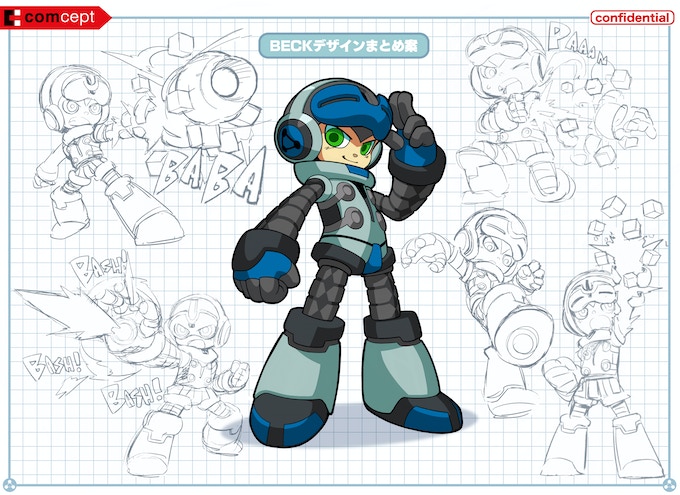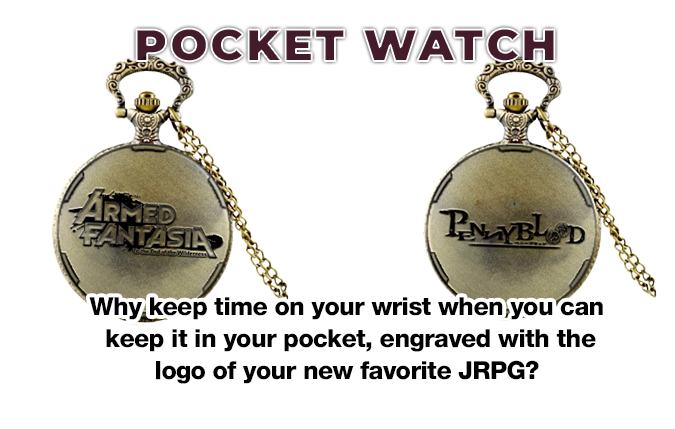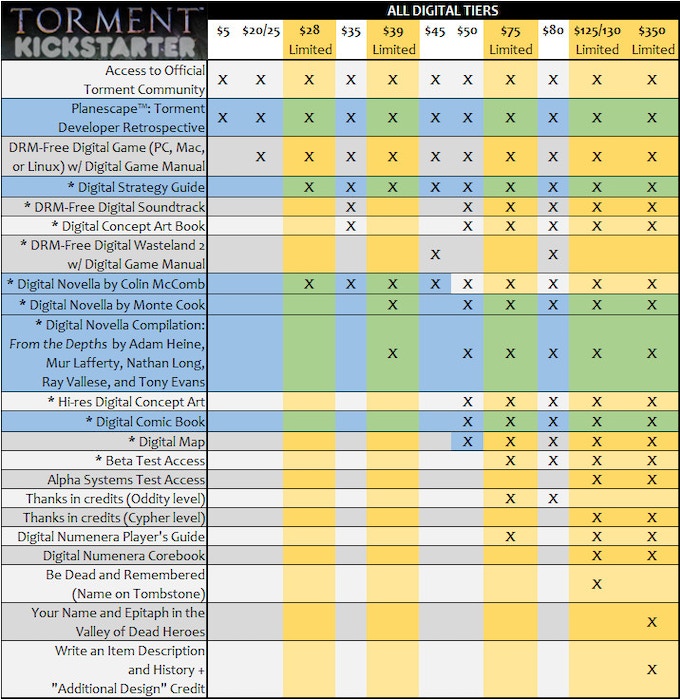It’s no secret that I like Suikoden a lot. Even the bad ones. The series’ spiritual successor the Eiyuden Chronicles: Hundred Heroes got yet another trailer recently. The creators are mostly saying the right things, indicating they’re focusing on things that Suikoden did differently from most games – having a large cast, involving that cast in the story (appropriately), and a relatively realistic and political scenario.

I’m a little worried, though, because past crowdfunded games that focused too much on recapturing an existing series’ magic lost sight of being their own thing, and end up being known as inferior copies. Mighty No. 9 is probably the most notorious, but it’s definitely not alone in this. Been there, got the t-shirt, still wear it ironically (probably), but honestly haven’t played the game. Or Shenmue 3. Or Pathologic 2. But I spent money on them. That’s on me, not necessarily on the developers of those games – and I’ve learned my lesson from those experiences. The lesson isn’t “buy the t-shirt, it might be the only thing of tangible value.”
Part of the reason people back these projects is that we think of game development as “hero driven.” There’s a public face people associate with a series (e.g. Keiji Inafune for Mega Man) but they’re not necessarily the only driver – or even the main driver – in a series’ success. Much as I appreciate their influence and respect their prior work, no Suikoden veteran returning for Eiyuden Chronicles is necessary for a new game to be “Suikodenish.” Suikoden V is a perfectly good entry in the series and was made by a completely different team from the early games. Having Murayama “back” at the helm of a new series is great, but it takes a village.

There are also things that Suikoden (even the second one) didn’t do very well. Cryptic recruitment requirements come to mind immediately. Many characters received no development or were ineffectual in combat – the worst offenders were useless characters that were required party members in parts of the game, like Freed Y. But it’s all a balance – if every character is useful in combat, it will be hard to meaningfully differentiate them or make fights strategic. If all 100+ characters receive substantial side content, you’re looking at an extremely bloated game. One strength of the first two games is their relative tightness, narrative-wise – although only a few characters are fully developed, they’re extremely fast-paced games that tell a sweeping story in less than 25 hours. While Suikoden III does an excellent job of developing a larger core cast, it also takes at least 40 hours to play and even for a fan of the series, that’s a big commitment.
More recently, another “tug at the heartstrings” project was announced, a dual Kickstarter for a Wild Arms successor (Armed Fantasia) and a Shadow Hearts successor (Penny Blood). I like some of the Wild Arms games (I may have written even more on that series than on Suikoden), but given where it left off I am very skeptical that it is going to develop in a healthy fashion.

The first Wild Arms was unusual, mixing Zelda-esque puzzles, strategic battles, and a relatively mature plot. As the series progressed, its unique features were lost – by Wild Arms 4, music and guns were the only thing differentiating it from other JRPGs, and by Wild Arms 5 what little symbolism was still subtle is directly pointed out with beautiful lines like, “An ARM represents determination to change the world!” While the final console entry was good in some ways, I’m skeptical that the core team can still make a game that I will enjoy. I suspect many backing Armed Fantasia didn’t play any of the series entries that came out in this millennium, because many signs in the Kickstarter point to more “the 18 year old is the elder on the team” nonsense, full of anime tropes and a science fiction setting masquerading as wild west crossed with fantasy. I don’t think it will have anything resembling the sad, subdued tone of the original, where fundamentally lonely people band together to try (and fail frequently) to protect scattered pockets of human civilization from what amounts to an alien invasion. Thankfully, Sony seems willing to re-release the first Wild Arms on many platforms. And the creation of a Wild Arms successor in no way invalidates the original series, so although I’m not on board with the project per se, godspeed.

In the abstract, I love the idea of a Kickstarter because it’s a way to directly support the developer before the game is fully released. I find the attitude of “buy X if you want to see more games in the genre” loathsome, because frequently X is a poor example of the genre or something I don’t actually like. (Buy Class of Heroes II if you want more classic-style JRPGs! Also, Class of Heroes II is a Wizardry clone. Which, ironically, was crowdfunded, but this was part of the pitch. Thanks, Vic Ireland.) Kickstarters allow backers to target specific projects they like, and also back at a level they feel comfortable with. That, at least, is a good thing. Those who are skeptical of the idea, or don’t like the idea of spending money now with no guarantees, can wait until it is released (if it is) and likely pay the same amount or slightly more.


Some of the examples you brought up are interesting. Mighty Number 9 is a solid example of how games are largely not defined by the output of one person. Inafune has proven over the years that he was not nearly as much of an influence (at least not a positive influence) on Mega Man as he wants you to believe.
Weirdly enough, I think Shenmue 3 has the opposite problem – it’s way too close to its predecessors. I’m not sure Yu Suzuki and his team managed to make a modern game that feels quite that old and obsolete, but they did it.
I don’t know what to make of any of this, other than that maybe it’s best not to always try to re-capture lightning in a bottle. It’s hard to make even one truly classic game – maybe we as an audience (as well as the directors spearheading these campaigns) should acknowledge that and stop trying to recapture former glories.
Those games are still there, and they’re still great! And going forward, one can always take the best parts of them and use them as ingredients in some sort of new, different (but not necessarily better) experience.
Update – I realize there are some examples of this strategy working out. I think most people would agree that Bloodstained was at least a solid IGAvania. But I’d also argue that the gaming world wouldn’t be all that much poorer if it didn’t exist.Maybe the moral of the story is “do your thing, chicken wing, but don’t go in with any wild expectations.”
i definitely agree that it takes more than one person’s vision to make a game, but i also think that the individuals involved do matter, though i prefer “auteur” to “hero.” to take your suikoden/eiyuden example, once murayama left konami, they did not continue the core storyline of the series. IV and V are both prequels (even if V isnt as bad as IV) so it seems they lacked the interest or confidence to carry on the story. also, murayama isnt the only suikoden stalwart working on eiyuden, which gives me more confidence in the campaign overall. mighty number 9 seemed like an example of someone overplaying his development abilities and connection to a beloved series (wasnt inafune mostly an artist then business guy?). so my point is that individuals do matter, and more of the original individuals the better, especially if they are the ones responsible for what made the game good. i think we have a lot of that in eiyuden.
i know less about wild arms than i do about suikoden, and i know nothing about shadow hearts. i realized after backing i have played 1 of the 9 main games in the two series combined (wild arms 1) so i bought wild arms 2 as a psone classic to play on my vita eventually (and as fodder for a 2023 gaming resolution). i wish shadow hearts wasnt owned by some pachinko company so there was a chance of seeing those playable somewhere. to me, that campaign is what i described in my article: a fun thing to get swept up in, that may result in a good game or two at the end of the day.
of course some of the revivals pale next to the originals, and maybe we have some nostalgia for games from our childhoods, but kickstarter has given us some objectively good spiritual successors and games in neglected genres. shadowrun returns trilogy is great, pillars of eternity and bloodstained reviewed well (i havent played them), and i think eiyuden is showing real promise. its always hard to make something that lives on as a classic, but several crowdfunded games have accomplished it.
I know the site is back in cryo-lockdown, and I’m not sure exactly where to pose this question, but I’m really curious to see what the final impression of Eiyuden Chronicle: Hundred Heroes was/is!
I haven’t bought it yet, with the plan that I’ll buy it when I’m actually free to play it and have the right perspective on it to take it up in good faith. Sometimes approaching a game with the right perspective can make all the difference in the world when it comes to enjoying it (example: don’t keep waiting for inventive device centered puzzles for the Another Code reboot or you’ll just be stuck in the station forever and miss what WAS on offer).
If anybody is out there listening, is it possible to get some feedback on what YOU would say is the ideal point of view to enjoy the game?
Realizing it’s been more than two months since you posed the question…
I’ve 4/5 written a more-full review, and I may post it here I suppose. I default to throwing things on my personal blog without pictures or good structure to get them out of my system.
The quick summary is that I played it on Switch, I enjoyed it, but it doesn’t reach the high highs of Suikoden 2/3/5. That said it doesn’t have some of the lows (its pacing is generally pretty good).
It’s biggest problem IMO is that it feels like Suikoden with extra anime/manga tropes. It leans too hard into the latter at times so it feels a bit less personal/heartfelt and a bit too exaggerated. Suikoden has some obvious trope characters, and silly minigames, but every town in ECHH has a person who challenges you to a minigame (often without telling you which one… but it’s always Beigoma). The characters are fun but many of them are a little too cliche (at least Seign is a fun implementation of cliche).
I do kind of appreciate that the story doesn’t dwell as much on tragedy, given the context around its development.
If I had to pick a mindset or frame of reference that’ll help your enjoyment… expect and embrace the idea of classic (not just classic-styled) dungeon mechanics. I can’t find it now, but I remember one of the Kickstarter updates mentioning Murayama pushed hard for the battle of attrition and limited inventory space. You’re expected to head back to town for some dungeons to restock.
If you do play it, a vague tip that would’ve saved me time: If you find yourself in a castle and are told you can backtrack to recruit people… you aren’t told how to do it and the place is hard to find. Look for a well in a courtyard.
Perfect, thanks a bunch for the feedback, Chris, that’s helpful! I often wish that developers would ship a ‘primer’ or introduction with their games, since we no longer have manuals anymore for this sort of thing :) I can’t remember what game(s?) David Cage included an introduction for, but I definitely felt (as pretentious as it was) that it was properly queueing me up for what I was about to play.
What’s your personal blog, if I could ask?
Sure thing!
Personal blog is https://www.niahak.org – but I really haven’t posted much in the past couple years.
UFO 50 in particular has given me a lot to think about recently though!
No advertising of personal sites here. You’re going to drive us out of business.
[…] a little bit of history, since this is the backdrop for my experience with the Kickstarter. You may know the original writer behind Suikoden (Yoshitaka Murayama) left the video game industry […]